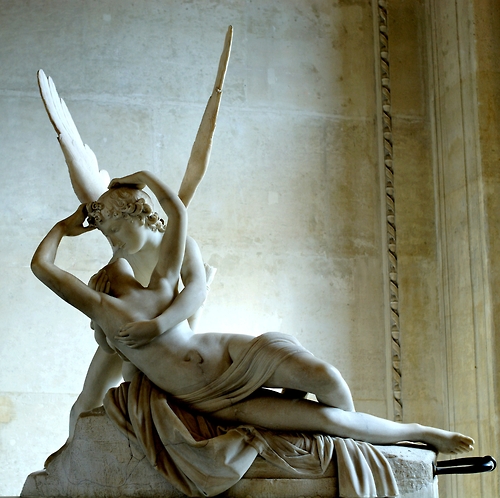The Louvre Museum - Paris Museum

No doubt that the Louvre, or Musée du Louvre in its original language, is the most popular museum in France. The iconic museum has been featured in many novels, short stories, and movies which soar its name throughout the world. The museum is located on the right bank of Seine River and serves as the landmark of Paris beside the Eiffel Tower and Arc de Triomphe.
History of Louvre Museum
The building that hosts the Louvre Museum is the Louvre Palace, a palace which was built on the fortress established in 12th century by Phillip II. There were several renovations done to form what the Palace today. The renovations were done by numerous kings and they were including the changing of the palace’s style and building extention.
Once served as the palace to the King of France, Louvre Palace was abandoned when Louis XIV decided to move residency to Palace of Versailles in 1682. The palace then was officially transformed as a public museum in May 1971 during the French Revolution by the Assembly. On its opening year in 1793, the museum was opened to public for free three days a week. By that time, the museum hosted 537 paintings and 184 other art objects. The museum then was closed in 1796 due to some structural deficiencies and reopened On July 14, 1801.

In 1983, President François Mitterrand proposes a big renovation of the building and awarded the project to I. M. Pei who proposed to build a giant glass pyramid on the new entrance in the main court. The pyramid underground lobby and entrance was launched on October 15, 1988. The second
The Louvre Museum Today
Today, there are 380,000 art objects and 35,000 works of art in eight departments of the Louvre Museum. The Museum itself now stands on more than 60,600 square meters. The Louvre is also recorded as the most visited museum with 15,000 people visiting per day, 65% of them are foreign tourists.

Louvre Museum Collections
Egyptian antiquities
There are more than 50,000 objects in this department including historical artifacts from Nile civilizations dated back to 4,000 BC. The collection is placed in 20 rooms and spans from Ancient Egypt, the Middle Kingdom, the New Kingdom, Coptic art, the Roman, Ptolemaic, to the Byzantine periods.

Near Eastern antiquities
The collection in this department displays the pieces from the early Near Eastern civilization until the era before Islam’s arrival. It is divided into three categories, the Levant, Mesopotamia, and Persia. The collection in this department includes Stele of the Vultures and the 2.25-meter Code of Hammurabi.
Greek, Etruscan, and Roman

This department is the oldest department in the museum. It displays pieces from Mediterranean Basin. Some prominent collections are the Borghese Vase, Apollo Belvedere, Venus de Milo sculpture. Greek potteries are displayed in the Galerie Campana while Roman sculptures are displayed in the galleries paralleled to Seine River.
Islamic art

The Islamic art department is the newest department to date in the Louvre. There are over 5,000 works and 1,000 shards displayed in the Islamic art section. The collection includes glass, comprising ceramics, wood, metalware, carpet, textiles, ivory and miniatures.
Sculpture

The sculpture display is divided into two parts. The first one located in the Richelieu wing is for French collection and the second one is located in the Denon wing for foreign collection. Some prominent works are Descent from the Cross by Germain Pilon, Woman Bathing by Etieene Maurice Falconet, and Psyche Revived by Cupid’s Kiss by Antonio Canova.
Painting

There are over 6,000 works from 13th to19th century displayed in the Louvre. Almost two-thirds of the collection are made by French artists while around 1,200 others are of Northern European artists. Some of the most famous paintings hosted in the Louvre are Leonardo da Vinci’s Mona Lisa and Madonna of the Rocks. Caravaggio’s The Fortune Teller and Death of the Virgin, and Titian’s Le Concert Champetre,
Prints and drawings
The collection is located in the Pavillon de Flore and divided into three categories: Cabinet du Roi, 14,000 royal copper printing plates, and donations from Edmond de Rothschild. Only a portion of the collection are displayed each time due to the fragility of the papers.
Satelite Museum
Louvre Lens
Because of Louvre Museum’s huge popularity, French officials decided to allow several satellite museums to build to relieve the crowded Paris Louvre Museum. The first one to build was Le Louvre-lens. It was opened in 2009.
Abu Dhabi
In March 2007, French Culture Minister Renaud Donnedieu de Vabres and Sheik Sultan bin Tahnoon Al Nahyan signed a 30-year agreement of a Louvre-Abu Dhabi satellite. For the permission, the French government received €832,000,000 in return from the Abu Dhabi government. A French architect, Jean Nouvel will handle the design. The museum is predicted to be completed in 2012 and to receive art collection from various museums in France.
Visiting the Louvre Paris
To reach Louvre Museum, you can take Metro to Palais Royal – Musée du Louvre Métro or from Louvre-Rivoli stations. There are three ways to enter the Louvre. The main entrance is from the pyramid. You can also enter the museum through the Carrousel du Louvre underground shopping mall and the Porte des Lions.

You can access Louvre Museum by purchasing Museum and Monuments Card (Carte Musées et Monuments), with which you can enter approximately 70 tourist attractions in Paris. The card can be purchased in Paris Tourist Office which is located in 127, avenue des Champs-Elysées), in several Paris train stations, in the major Metro stations, at the Eiffel Tower, and some other tourist attractions.
View Larger Map
Louvre Museum Address:
Musée du Louvre, 75058 Paris - France
Phone: + 33 (0) 1 40 20 53 17
Website: www.louvre.fr
Louvre Museum Opening Hours:
Open daily from 9 am to 18 pm except Tuesdays
Open until 21 pm on Wednesday 45 and Friday
Closures:
The January 1, May 1 and December 25
 Follow
Follow